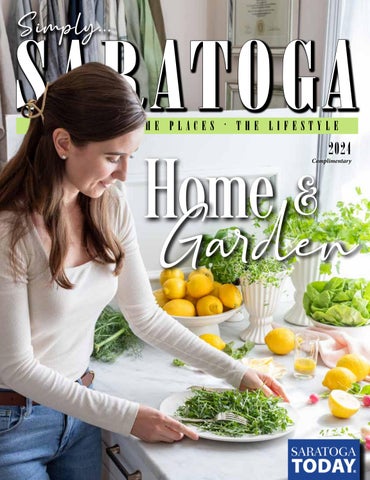
Whispers on the Porch: Will Proposed Changes to Texas Cottage Food Laws Uproot Our Homesteading Dreams?
The sun is setting, casting long shadows across the porch of my Better Homes and Harvests homestead. The air is thick with the sweet scent of honeysuckle and freshly baked bread. My sun tea is cold, but the conversation with my neighbors is heating up. The topic? The latest buzz about proposed changes to Texas' Cottage Food Laws, specifically, let's call it "Bill 1234." It's a bill that could drastically alter the landscape for small-scale homesteaders like us, impacting our ability to sell our jams, pickles, and baked goods – the very lifeblood of many in our rural community.

A colorful assortment of homemade jams and preserves, representing the delicious cottage food products that Texas homesteaders rely on for income.
So, what exactly is Bill 1234, and how could it affect Texas homesteaders and gardeners? Let's dig in.
The Gist of Bill 1234: A Closer Look
Bill 1234, as it's currently proposed, aims to "modernize" the existing Texas Cottage Food Law. On the surface, some aspects appear beneficial. The proposed legislation seeks to expand the list of allowed foods, potentially including low-acid canned goods with proper pH testing, and increase the annual gross sales cap for cottage food operations. These changes are being proposed by [Insert hypothetical State Representative's name], Representative Emily Carter, who argues that these adjustments will empower small businesses and boost the local economy. Her stated reasons center on reducing unnecessary regulatory burdens and allowing Texans to embrace entrepreneurial opportunities. She also argues that it will level the playing field with surrounding states.
However, the devil is in the details. While expanding the types of allowed food seems promising, the bill also introduces stricter regulations regarding kitchen inspections and mandatory food safety training, regardless of the type of food produced. Some argue that these new requirements are overly burdensome and could disproportionately affect smaller operations.
Potential Benefits: A Silver Lining?
- Expanded Product List: The possibility of including certain low-acid canned goods could open new avenues for revenue. Imagine selling your famous tomato sauce or pickled green beans!
- Increased Sales Cap: A higher gross sales cap would allow successful cottage food businesses to grow and thrive.
- Potential for Online Sales Expansion: There is discussion around clarifying regulations for online sales, which could significantly expand market reach.
Potential Drawbacks: A Storm Brewing?
- Mandatory Kitchen Inspections: This is a major concern. Many homesteaders operate out of their home kitchens, which may not meet the stringent requirements of commercial kitchens. The cost of upgrading or building a separate facility could be prohibitive.
- Mandatory Food Safety Training: While food safety is paramount, the proposed training requirements may be expensive and time-consuming, particularly for established cottage food operators with years of experience.
- Unclear Definition of "Homestead": The bill doesn't explicitly define what constitutes a "homestead," which could lead to confusion and inconsistent enforcement. What about those who live in more suburban areas but maintain extensive gardens?
- Increased Compliance Costs: The combination of inspections, training, and potential kitchen upgrades could significantly increase the cost of operating a cottage food business, potentially pricing smaller operations out of the market.
Elsie's Story: A Homestead in Peril
Let me tell you about Elsie. She's been my neighbor for years. Her hands, weathered by sun and soil, coax the most incredible produce from her garden. The air around her small, weathered farmhouse always smells of something wonderful baking – cinnamon rolls, apple pies, sourdough bread. Her award-winning strawberry preserves are legendary at the local farmer's market. The income from her cottage food business isn't just extra money; it's what keeps her homestead afloat.

Elsie carefully tends to her flourishing vegetable garden, her livelihood potentially at risk due to proposed changes in Texas Cottage Food Law.
I sat with Elsie on her porch swing last week, sipping her homemade elderflower cordial. The worry etched on her face was palpable. She's been meticulously researching Bill 1234, and she's terrified. The cost of upgrading her kitchen to meet commercial standards is simply beyond her means. The thought of closing her business, of letting her garden wither, brings tears to her eyes. "This isn't just about making jam," she said, her voice trembling. "It's about preserving a way of life." Her story is not unique. It echoes the concerns of countless homesteaders across Texas.
Taking Action: Protecting Our Food Freedom
We can't let Elsie's story become a reality for homesteaders across Texas. Here's what you can do today to voice your opinion and protect our ability to earn a living from our land:
- Contact Your State Representatives: Find your representatives and their contact information at the [Texas Legislature Website](insert hypothetical link to texas legislature website). Call, email, or write a letter expressing your concerns about Bill 1234. Share your personal story and explain how these proposed changes would affect you and your community. Be respectful but firm in your opposition to regulations that would cripple small-scale homesteading.
- Contact Representative Emily Carter: As the proponent of this bill, her office needs to hear from the people it will impact the most. Her contact information can be found on the [Texas House of Representatives Website](insert hypothetical link to Texas House website).
- Join or Form a Local Advocacy Group: Connect with other homesteaders and gardeners in your community to amplify your voice. Organize meetings, write op-eds for local newspapers, and attend town hall meetings.
- Sign Petitions and Support Organizations: Look for online petitions and organizations dedicated to supporting cottage food businesses. Share these resources with your network.
- Educate Yourself: Stay informed about the latest developments regarding Bill 1234. Follow news articles, attend legislative hearings (if possible), and connect with advocacy groups for updates.
Resources:
- [Hypothetical Link to Texas Cottage Food Law Information from the Texas Department of State Health Services]
- [Hypothetical Link to Texas Legislature Online]
- [Hypothetical Link to a Texas Cottage Food Advocacy Group]

A display of artisan breads and pastries, showcasing the beauty and value of homemade baked goods produced under cottage food laws in Texas.
Our ability to grow, create, and sell homemade goods is more than just a business; it's a fundamental part of our self-sufficiency and community resilience. We must stand together to protect it. This is about preserving the values of hard work, local food systems, and the simple pleasure of sharing the fruits (and vegetables!) of our labor. Cottage Food Laws, Homesteading Legislation, Local Food Systems, Texas Food Freedom Act.
What are your thoughts on these proposed changes? How do you think they will affect your community? Let’s start a conversation in the comments below.